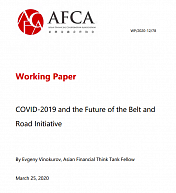The reason for the temporary loading stop is congestion at the China-Kazakhstan borders. «Since May, more than 25,000 import containers have been stacked at the border with Kazakhstan, while the transloading capacity is just one train(50 containers) per day. The backlog of containers occupies tracks and wagons, and this in turn impacts the wagon turnover», explains Jacky Yan, CEO of New Silk Road Intermodal.
Not unusual
A temporary stop for transloading or even passing the border is not unusual, but in almost all cases excludes the traffic between China and Europe. This is considered a priority by China Railways. Also this time, the China-Europe Express will be permitted to stop and reload containers at the border stations.
«I believe the suspension will be extended after 9 July. This won’t impact the departure of the trains with a fixed slot, but it will definitely further reduce the slots and impact the trains with provisional slots. It will reduce the space available and cause delay at the origin terminal», clarifies Yan.




